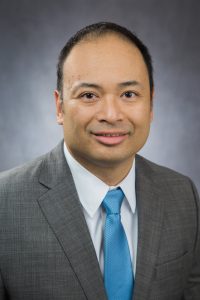ABPS Diplomate Leonard Lamsen, MD, On What It’s Like to Be an Emergency Medicine Physician
 When I was in medical school, I had a difficult time deciding on a specialty. I knew I liked variety, and both family and emergency medicine treated patients regardless of age and gender. After speaking to my mentors in both specialties and meeting emergency physicians who had completed family medicine training, I decided to pursue family medicine.
When I was in medical school, I had a difficult time deciding on a specialty. I knew I liked variety, and both family and emergency medicine treated patients regardless of age and gender. After speaking to my mentors in both specialties and meeting emergency physicians who had completed family medicine training, I decided to pursue family medicine.
During my family medicine residency, I discovered that I had an affinity for treating more emergent medical problems, so I entered the emergency medicine fellowship program at the University of Tennessee Medical Center. I graduated from the program in 2011 and continue to practice at UTMC to this day.
Without a doubt, emergency medicine has been a good fit for me. As someone with a growth mindset, I have enjoyed a wealth of opportunities to acquire new information and skills in a field that continues to innovate. For instance, I’ve completed additional training in point-of-care ultrasound and medical simulation. Not only has this improved my practice, but I’ve also been able to integrate it into the EM fellowship at UTMC. As an EM physician, I also have the foundation to stabilize and manage virtually any condition, treating men, women, and children, and the whole spectrum of a disease or illness.
What I find especially interesting about practicing EM is the emotions it evokes. I don’t consider myself an emotional person, but in any given shift, I can experience so many emotions, from excitement when I’m working with my team on resuscitating a patient to hope when our efforts are successful. And, at the end of the day, no matter how it went, I can experience satisfaction from knowing I’ve done my best to improve the lives of my patients.
As rewarding as it is, working in the emergency room is also demanding. During busy hours, patient flow can be a challenge, with patients we’re actively seeing, patients waiting for rooms, and patients in the lobby waiting to be seen but who have no rooms available. The lifestyle can also be tough. Because the emergency department is open every day, around the clock, I must work some weekends and holidays, but with thoughtful advance planning, I can still “be there” for my family at most events. Fortunately, I have a wonderful family who supports me as well as colleagues and leaders who make job flexibility possible.
My most memorable experience in the ER happened when I was working a busy night shift. I’d set my phone on silent as I usually do, so, throughout the night, I did not receive the phone calls from my pregnant wife. Finally, she texted me, telling me that she had arrived and was waiting in the car. Apparently, her contractions were intensifying and she was afraid that she wouldn’t be able to drive herself to the hospital. We had our daughter that day.
If I could give some advice to an EM physician in training, I’d say, “Every patient can be a learning opportunity, and not only your patients, but also those of your colleagues. While in training, learn and become proficient in all the skills you can because acquiring new skills will become harder once you get out.”
For physicians in training, I think soft skills are less tangible and harder to quantify, but they can make a world of difference once they begin working in the emergency department. Communication, leadership, teamwork, flexibility, and time management are soft skills that all EM physicians should develop. We do not work in a silo. We encounter people from all walks of life—family members, pre-hospital personnel, hospital administration, students, residents, other physicians, nurses, and other healthcare staff. It is important that we learn to communicate effectively with such a diverse group of people. We need to exercise leadership and teamwork to constantly engage our staff and consultants to provide the best care for our patients. And, since emergency departments can often be overcrowded, we need to have flexibility and time management skills to treat our critically ill patients while ensuring less emergent medical problems are also managed efficiently.










